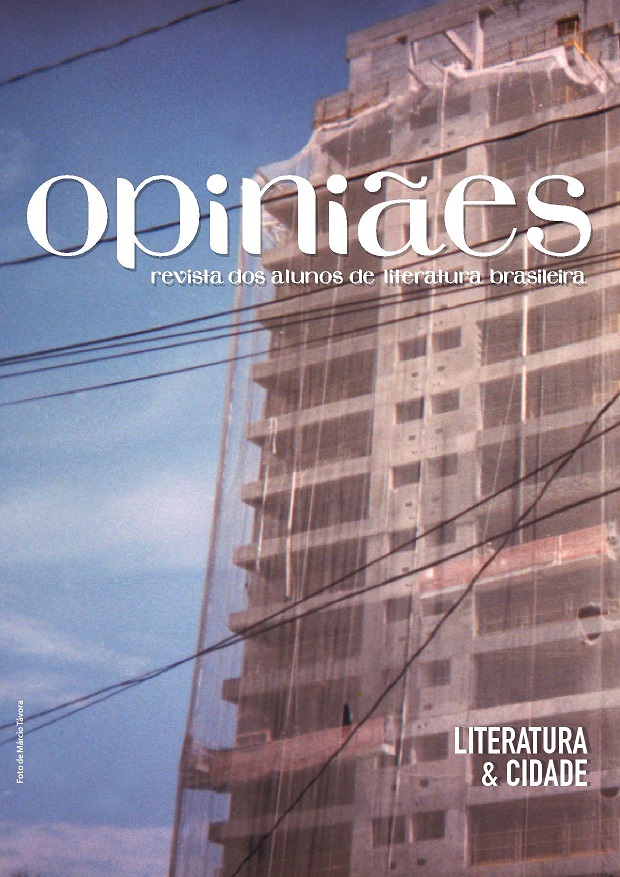Adventure and Urban Indetermination in Short-Stories by Machado de Assis
DOI:
https://doi.org/10.11606/issn.2525-8133.opiniaes.2016.124624Keywords:
urban culture, city and literature, capital city, Rio de Janeiro, slavery, Machado de Assis.Abstract
This article aims at analyzing the allusions to urban life in the city of Rio de Janeiro from selected short stories by Machado de Assis. The goal is to examine how allusions to modern life appear in the author's literature. For this study two short stories were selected, "A cartomante" and "Pai contra mãe", from Várias histórias (1896) and Relíquias de Casa Velha (1906), respectively. Other tales such as "O diplomático" and "O astrólogo" are also addressed. Georg Simmel’s conceptual category of "adventure" suggests how chance and risk are elements of urban life, making it impossible to determine the results of individual acts. In the short stories above mentioned, the city is an environment of unpredictability and characters try to solve such irresolutions through their wandering of the streets. There are different social groups sharing the same collective spaces, but living together is not necessarily harmonious. Although the political lexicon was founded on the liberal matrix, the values of the Old Regime lingered on. Thus, big city dangers could not be suppressed. Adventure and indetermination provide clues to the understanding of Machado’s view on the city that appears the most in its literature.Downloads
Download data is not yet available.
Downloads
Published
2016-12-21
Issue
Section
Dossiê
License
A revista Opiniães não exerce cobrança pelas contribuições recebidas, garantindo o compartilhamento universal de suas publicações. Os autores mantêm os direitos autorais sobre os textos originais e inéditos que disponibilizarem e concedem à revista o direito de primeira publicação, com o trabalho simultaneamente licenciado sob a Licença Creative Commons Attribution que permite o compartilhamento do trabalho com reconhecimento da autoria e publicação inicial nesta revista.
How to Cite
Rodrigues, D. de O. (2016). Adventure and Urban Indetermination in Short-Stories by Machado de Assis. Opiniães, 5(9), 118-127. https://doi.org/10.11606/issn.2525-8133.opiniaes.2016.124624



